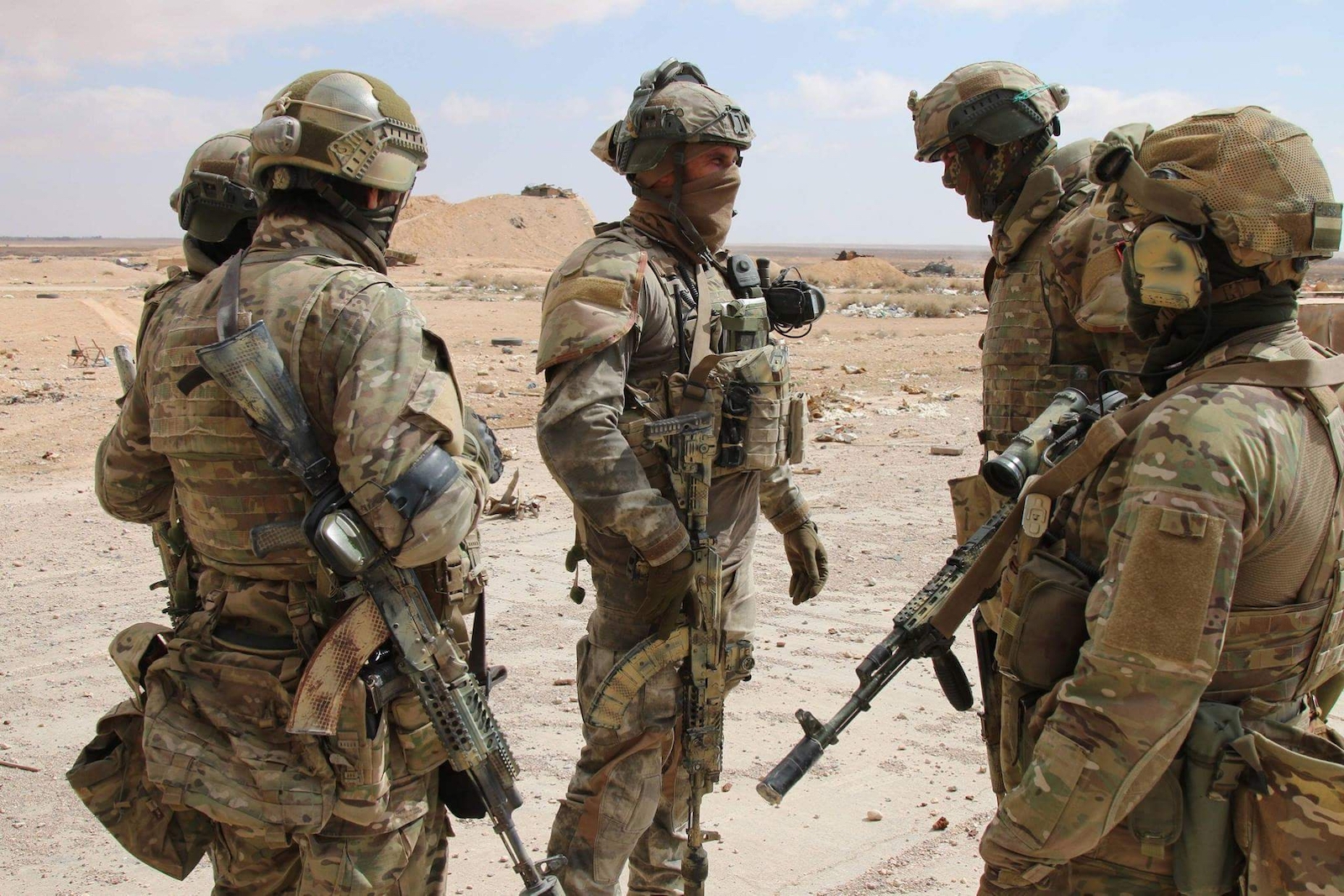
Russia’s Soldiers of Misfortune
On February 7th, 2018, a battle raged near the Syrian town of Khasham. American Special Forces and allied Syrian rebels guarded a local gas plant. When night fell, an unidentified force consisting of hundreds of men with armored vehicles attacked them. The men in the force spoke Russian, but the Russian military command in Syria claimed they were not Russian soldiers. The column attacked the American position with tanks and mortars. American artillery and aircraft began firing on the attackers, who retreated after hours of fierce fighting. When the sun rose, hundreds of Russian and Syrian bodies littered the battlefield. The dead were members of the notorious Wagner Group, a network of Russian mercenaries with a close working relationship with the Kremlin.
America needs a strategy to combat Russian mercenaries. For too long, the U.S. has merely levied sanctions on scattered individual fighters and mercenary companies while not prioritizing the Russian oligarchs who finance them. A new strategy should include heavy public condemnation by American leaders and diplomats, with the goal of drawing more global attention to Russian corruption and mercenary activity. It should also feature targeted economic sanctions against offending Russian oligarchs and politicians through an updated Magnitsky Act. These measures would cost the American people little, could be quickly implemented, and would significantly enhance American security and standing abroad.
Also known as private military contractors (PMCs), Russian mercenaries undermine American interests and values all over the world. In Libya, Syria, Venezuela, and more, PMCs exacerbate civil wars and plunder natural resources from poverty-stricken countries. They may be directly hired by a local government, but also regularly carry out actions that benefit the Russian government. Russian leaders maintain plausible deniability if their mercenaries fail, but are quick to take advantage of PMC actions if they succeed. If the U.S. refuses to act against Russian duplicity, the Russian government has no reason to stop using PMCs as a versatile international proxy.
A new strategy would be easy to implement. The original Magnitsky Act targets human rights abusers and corruption in the Russian government. It prevents its targets from entering the U.S. or doing business with large numbers of American banks and companies. It proved so effective that the European Union created its own Magnitsky Act, which allows for greater coordination and enforcement of international sanctions. If the U.S. Congress expands Magnitsky to target PMC sponsors, it will give the president the ability to impose damaging sanctions through an effective, existing legal framework.
America should take the fight to the Russian elite. Oligarchs like Yevgeny Prigozhin have enriched themselves on blatant corruption through landing government contracts, as well as ties to organized crime. Prigozhin has a close personal relationship with Vladimir Putin, and journalists and academics suspect that he directly profits from Wagner Group activities. In the past, suspected Wagner fighters harassed Russian journalists who probed too deeply into Wagner. One investigating journalist was likely thrown from his balcony to die on the street below. Russia fears those investigating Wagner. American diplomats and politicians should support these Russian journalists and help amplify their findings.
Finally, this strategy fundamentally changes the conversation around Russian mercenaries. Russia has long been able to deny having any official ties to PMCs. In fact, mercenary companies are officially outlawed throughout Russia. Regardless, it has not stopped the Russian government from regularly employing and benefitting from PMC action abroad. The U.S. should disregard Russian denials and accept the obvious evidence in front of us.
No strategy is perfect. The U.S. destroyed the mercenaries at Khasham with overwhelming military power, not sanctions and condemnation. Russian oligarchs have faced U.S. sanctions before, with little to show for it. In addition, the U.S. must be realistic in implementing its foreign policy. Because the U.S. has more important strategic priorities elsewhere, it is not realistic or wise to regularly use military force against Russian PMCs. Unilateral American sanctions might not have significantly impacted some Russian oligarchs, but multilateral sanctions implemented with allies through an expanded Magnitsky Act may prove far more effective.
Russia exploits chaos. America creates order, with some success. The international community should act quickly to discourage PMC use. After Wagner’s debacle in Syria, governments and journalists began to expose other Russian mercenary activities. The U.S. should encourage this trend. America needs to take this opportunity to establish new international norms around PMC use. Through vigorous multilateral sanctions and public condemnation, the U.S. can protect the vulnerable and counter Russian aggression worldwide.
